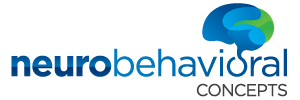What is it?
What to look for
Causes
Diagnosis
The characteristic symptoms of schizophrenia include delusions, or beliefs held contrary to all evidence; hallucinations, or distortions in the perception of reality; disorganized or incoherent speech; and extremely disorganized or catatonic behavior (i.e. physical immobility or excessive mobility). Children with schizophrenia may display a lack of emotional responsiveness (called blunted or flattened affect), a lack of motivation (called avolition) and a lack of voluntary speech (called alogia). Other symptoms may include strange eating rituals, irritability, or inappropriate emotions. A child will be diagnosed with schizophrenia only if his symptoms interfere with age-appropriate activities, including academic development and family and peer relations.
Schizophrenia is very difficult to diagnose because other psychiatric disorders (bipolar disorder, OCD,depression, even substance abuse) can generate similar symptoms if they manifest in psychosis. It is possible children with schizophrenia will be falsely diagnosed with conduct disorder becauseparanoia makes them respond in hostile or oppositional ways.
Treatment
Symptoms of schizophrenia respond to both pharmacological and therapeutic treatment.
Psychotherapeutic: Therapeutic treatments often involve individual therapy and social skills training. These sessions teach kids the coping mechanisms and communication skills that will help them go to school and socialize with their peers. Cognitive behavioral therapy is also commonly recommended to help children manage their symptoms; it’s been shown to reduce both severity of symptoms and the risk of relapse.
Family therapy also helps ensure steady treatment and helps family members learn coping strategies. It is very important for parents to address the problems posed by a child with schizophrenia consistently and limit emotional outbursts in the home. It is well-documented that symptoms of schizophrenia improve for children living in a stable environment.
Pharmacological: Antipsychotic medication is key to treating schizophrenia. Antipsychotics are strong medications that are very safe when managed well. It is important to work closely with your child’s psychiatrist and other doctors to monitor medications and minimize side effects. Your doctor might also recommend anti-anxiety medication or antidepressants to treat symptoms of schizophrenia.
Other disorders to look out for
Frequently asked questions
Scientists don’t know of an exact cause for schizophrenia, although there seems to be both genetic and environment factors that may cause susceptibility.
Do drugs help?
Yes. Antipsychotic medication is essential to treating symptoms of schizophrenia. Even if your child’s symptoms seem to be gone, it is very important to consult your psychiatrist before discontinuing any medication.
Will my child outgrow it?
There is some evidence that suggests when schizophrenia is treated early the symptoms may eventually go away; still, it is a chronic illness in most cases.
Is schizophrenia dangerous?
Most forms of schizophrenia are not dangerous, although paranoid schizophrenia can be. Children with the disorder might also experience command hallucinations ordering them to perform actions that are dangerous to themselves or others. Kids with schizophrenia are also at an increased risk of suicidal behavior.
How can a parent help?
Symptoms of schizophrenia drastically improve for children who live in stable, emotionally supportive environments. Parents should try to address the disorder consistently and limit angry or stressful outbursts in the home. It is also important to help your child monitor his condition. He may have certain daily tasks that are especially difficult for him to perform, or certain triggers that prompt a relapse. Your doctor should be immediately informed of any change of symptoms. It is also important to discourage your child from using alcohol and other substances which will worsen his symptoms.



